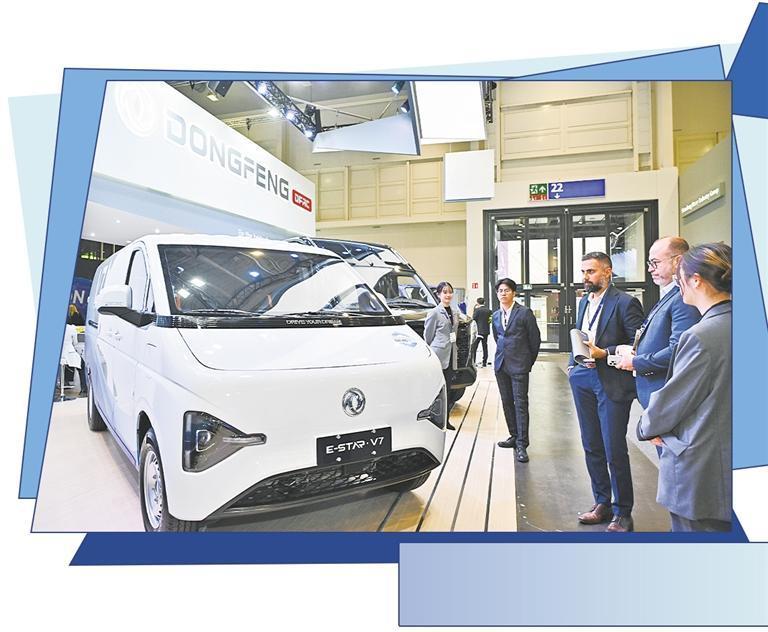
People visit the Dongfeng Motor Show during a media preview at the International Transport Expo in Hanover, Germany, Sept. 16,2010. Xinhua news agency reporter, photo by Ren Pengfei
On October 4, local time, representatives of EU member states voted to impose final anti-subsidy duties on chinese-made electric vehicles, according to the final draft of the EU anti-subsidy case submitted by the European Commission. With the result of the vote, the new tariffs are expected to come into effect next month and last for five years. The European side’s protectionist practice of imposing tariffs on China is a serious deviation from the principle of fair competition. It violates WTO rules and interferes with the normal international trade order.
The anti-subsidy investigation was initiated by the European Commission without a complaint from the EU industry. It lacks broad industry support and there are big differences between member states.
The German Economic Community strongly opposed the decision, saying it was not conducive to improving the overall competitiveness of European car companies, and called on the European Commission to continue consultations with China. The Verband der Automobilindustrie’s Hildegard, Moulle, said the vote would severely damage global co-operation and that the tariffs would do more harm than good. Moulle urged the EU to continue to find a negotiated solution, arguing that the ideal scenario was that tariffs would not actually be imposed in the end to avoid the risk of a trade conflict. Tanya Goerner, general manager of the German Industry Federation, also said that the decision to impose punitive tariffs on Chinese electric cars must not mean the end of negotiations, the interests of European industry must also be taken into account. The EU should strike a balance between protection and openness in its relations with China. The German car dealerships and Maintenance Association expressed regret that the German government’s position was not taken seriously at the European level. Punitive tariffs, it says, do not really solve the problem of fair global trade, but rather make consumers pay for politics. The Metal Industry Union, Germany’s largest trade union, and the unions of leading carmakers believe the tariffs will not improve the competitiveness of the European car industry and want to negotiate a level playing field.
In dealing with the economic and trade frictions between China and the EU, China always upholds the overall interests of the china-eu comprehensive strategic partnership and is committed to properly handling differences through dialogue and consultation. European industry is also reluctant to suffer the consequences of escalating trade frictions. After the vote, German carmakers including Volkswagen, BMW and Mercedes-benz immediately said that imposing tariffs on Chinese electric cars was a”Wrong move”, is a”Fatal signal” for the European car industry, calling on the European Commission to continue negotiations with China in the coming weeks.
Volkswagen Group management chairman Jens Obermu said punitive tariffs are particularly dangerous for the German auto industry. Many jobs in Germany depend on the export of German cars to the Chinese market. Rather than provoke a Chinese reaction with punitive tariffs, find a regulatory measure that is fair to both sides, the German government should continue to take a clear position on EU tariffs and”Hope that the EU can reach an agreement with the Chinese to find a solution that is fair to both sides”. BMW Group Chairman Zipzer also opposed the EU’s imposition of tariffs on Chinese electric cars. He said that the current situation is undoubtedly fatal for the European auto industry and that Europe and China need to find a solution quickly, to prevent a trade conflict in which there are only losers. Tsipzer stressed that the German government’s negative vote undoubtedly gave enough space for negotiations between the two sides. Mercedes-benz also said in a statement that anti-subsidy tariffs would continue to undermine the overall competitiveness of European car manufacturing, while Free Trade and fair competition would bring prosperity, growth and innovation to all.
In response to the protectionist measures taken by the European Commission against China’s auto industry, “We firmly oppose the imposition of tariffs on Chinese electric cars and hope that Chinese cars will continue to be exported to Europe,” said Hubert Ewanger, deputy governor of Bavaria and State Minister for Economy, Development and energy, “Europe is considering measures to restrict the Chinese auto industry, but the Bavarian government does not support such a policy. We advocate mutual support, not mutual barriers. Healthy competition can promote common progress, and fair competition is an important cornerstone of cooperative development. On the basis of fair competition, nothing can prevent us from further deepening co-operation in the future.”